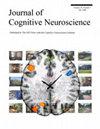Enhanced Delta Band Neural Tracking of Degraded Fundamental Frequency Speech in Noisy Environments
IF 3
3区 医学
Q2 NEUROSCIENCES
引用次数: 0
Abstract
Pitch variation of the fundamental frequency (F0) is critical to speech understanding, especially in noisy environments. Degrading the F0 contour reduces behaviorally measured speech intelligibility, posing greater challenges for tonal languages like Mandarin Chinese where the F0 pattern determines semantic meaning. However, neural tracking of Mandarin speech with degraded F0 information in noisy environments remains unclear. This study investigated neural envelope tracking of continuous Mandarin speech with three F0-flattening levels (original, flat-tone, and flat-all) under various signal-to-noise ratios (0, −9, and −12 dB). F0 contours were flattened at the word level for flat-tone and at the sentence level for flat-all Mandarin speech. Electroencephalography responses were indexed by the temporal response function in the delta (<4 Hz) and theta (4–8 Hz) frequency bands. Results show that delta-band envelope tracking is modulated by the degree of F0 flattening in a nonmonotonic manner. Notably, flat-tone Mandarin speech elicited the strongest envelope tracking compared with both original and flat-all speech, despite reduced F0 information. In contrast, the theta band, which primarily encodes speech signal-to-noise level, was not affected by F0 changes. In addition, listeners with better pitch-related music skills exhibited more efficient neural envelope speech tracking, despite being musically naive. These findings indicate that neural envelope tracking in the delta (but not theta) band is highly specific to F0 pitch variation and highlight the role of intrinsic musical skills for speech-in-noise benefits.噪声环境下退化基频语音的增强Delta带神经跟踪。
基频(F0)的音调变化对语音理解至关重要,特别是在嘈杂的环境中。降低F0轮廓降低了行为测量的语音可理解性,对普通话等声调语言构成了更大的挑战,因为F0模式决定了语义。然而,噪声环境下F0信息退化的普通话语音的神经跟踪尚不清楚。本研究研究了在不同信噪比(0、-9和-12 dB)下,具有三种f0平坦化水平(原始、平坦和全平坦)的连续普通话语音的神经包络跟踪。平调语音的F0轮廓在单词水平和平调语音的句子水平上都是平坦的。脑电图反应是通过delta (
本文章由计算机程序翻译,如有差异,请以英文原文为准。
求助全文
约1分钟内获得全文
求助全文
来源期刊
CiteScore
5.30
自引率
3.10%
发文量
151
审稿时长
3-8 weeks
期刊介绍:
Journal of Cognitive Neuroscience investigates brain–behavior interaction and promotes lively interchange among the mind sciences.

 求助内容:
求助内容: 应助结果提醒方式:
应助结果提醒方式:


